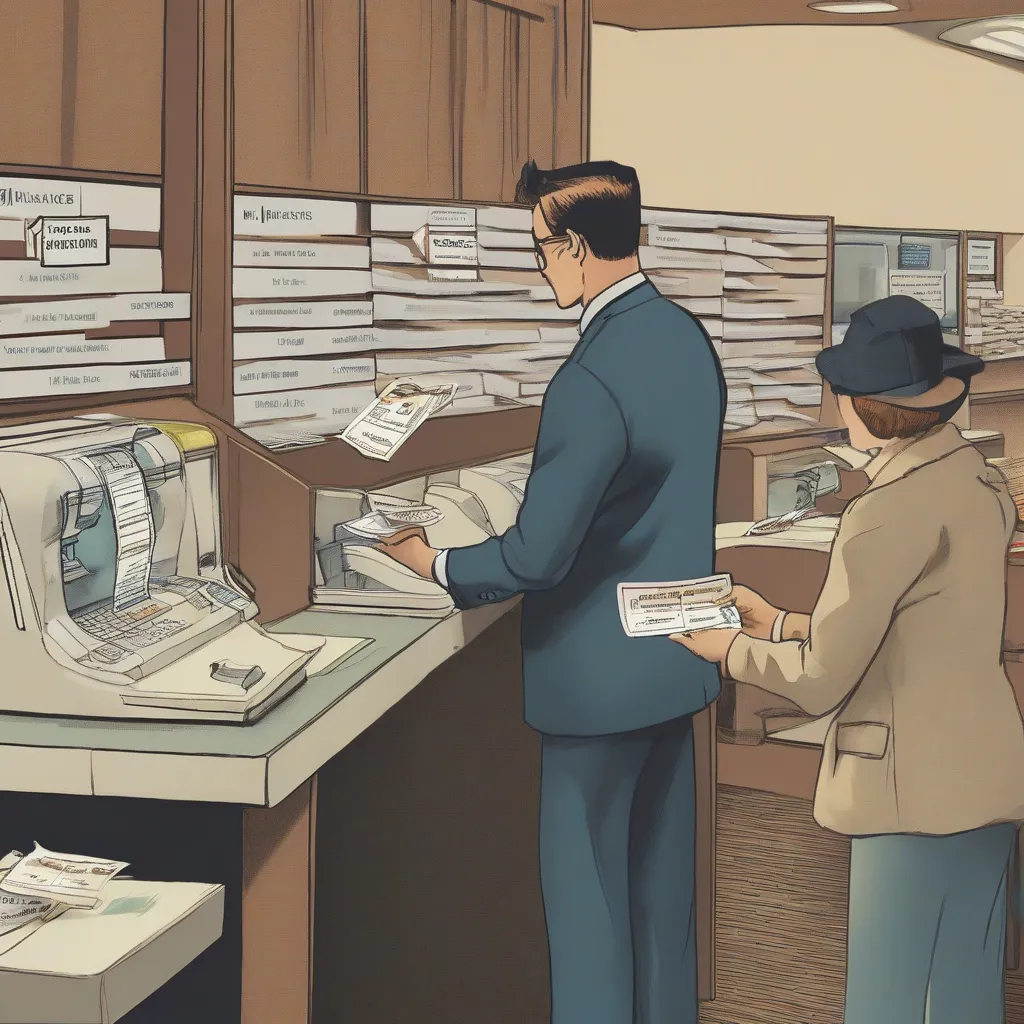Remember that time you stumbled upon your grandfather’s stash of traveler’s cheques while cleaning the attic? You might have wondered, “Are these ancient relics still relevant?” Surprisingly, yes! While not as common as they once were, traveler’s cheques still hold some relevance, especially for those seeking a secure alternative to carrying large amounts of cash. Let’s dive into the world of traveler’s cheques and explore how to cash them in today’s digital age.
Understanding Traveler’s Cheques
Before we jump into the “how-to,” let’s quickly recap what traveler’s cheques are. Essentially, they are pre-printed, fixed-amount checks issued by banks or financial institutions. Think of them as prepaid checks that you can use as a safe form of payment while traveling.
Cashing Your Traveler’s Cheques: A Step-by-Step Guide
Where to Cash Traveler’s Cheques
- Banks: Your best bet is usually a bank, preferably one that issues the type of traveler’s cheque you have. For instance, if you have American Express traveler’s cheques, visiting an Amex branch or a bank known to process Amex transactions would be a good starting point.
- Hotels: Some hotels, especially larger chains, might offer traveler’s cheque cashing services for their guests. It’s always a good idea to check with the hotel reception beforehand.
- Currency Exchange Bureaus: While they primarily focus on currency exchange, some bureaus might cash traveler’s cheques, often for a fee.
The Process:
- Locate a Cashing Facility: Use online resources or ask locals for recommendations on banks or exchange bureaus that cash traveler’s cheques.
- Present Your Identification: Be prepared to show valid photo identification, such as your passport.
- Sign the Cheques: You’ll need to countersign the cheques in front of the teller or agent.
- Receive Your Funds: Once verified, you’ll receive the cash in the local currency, often after a small commission or fee is deducted.
 Cashing Traveler's Cheques at a Bank
Cashing Traveler's Cheques at a Bank
Tips for a Smooth Experience
- Know the Fees: Inquire about potential fees beforehand to avoid surprises.
- Carry a Pen: Ensure you have a pen handy to countersign your cheques.
- Cash in Larger Amounts: To minimize fees, consider cashing larger amounts less frequently.
- Keep Records: Always retain your receipts and keep a record of the cheque numbers.
Are Traveler’s Cheques Right for You?
While traveler’s cheques offer security against loss or theft, they might not be the most convenient option in our increasingly digital world. For more modern alternatives, consider exploring travel debit cards or prepaid travel cards, which are discussed in detail in our article “A Travel Debit Card: Your Ultimate Travel Companion” on travelcar.edu.vn.
 Traveler's Cheques and Passport on a Map
Traveler's Cheques and Passport on a Map
FAQs about Cashing Traveler’s Cheques
Can I cash traveler’s cheques at any bank?
Not necessarily. While many banks cash traveler’s cheques, it’s advisable to contact the bank in advance to confirm their policy and whether they handle the specific brand of your cheques.
What if my traveler’s cheques are lost or stolen?
Traveler’s cheques offer a degree of security. If lost or stolen, you can typically report it to the issuing company and receive a refund.
Are there alternatives to traveler’s cheques?
Yes, options like travel debit cards, prepaid travel cards, and even mobile payment apps offer convenient alternatives to traveler’s cheques.
Explore More with Travelcar.edu.vn
Looking for more insights and travel tips? Dive into a wealth of information on TRAVELCAR.edu.vn, your one-stop resource for all things travel. From understanding if traveler’s cheques are still used to discovering the best travel hacks, we’ve got you covered.
Disclaimer: This article is intended for informational purposes only and does not constitute financial advice. Always consult with a qualified professional for personalized guidance.
